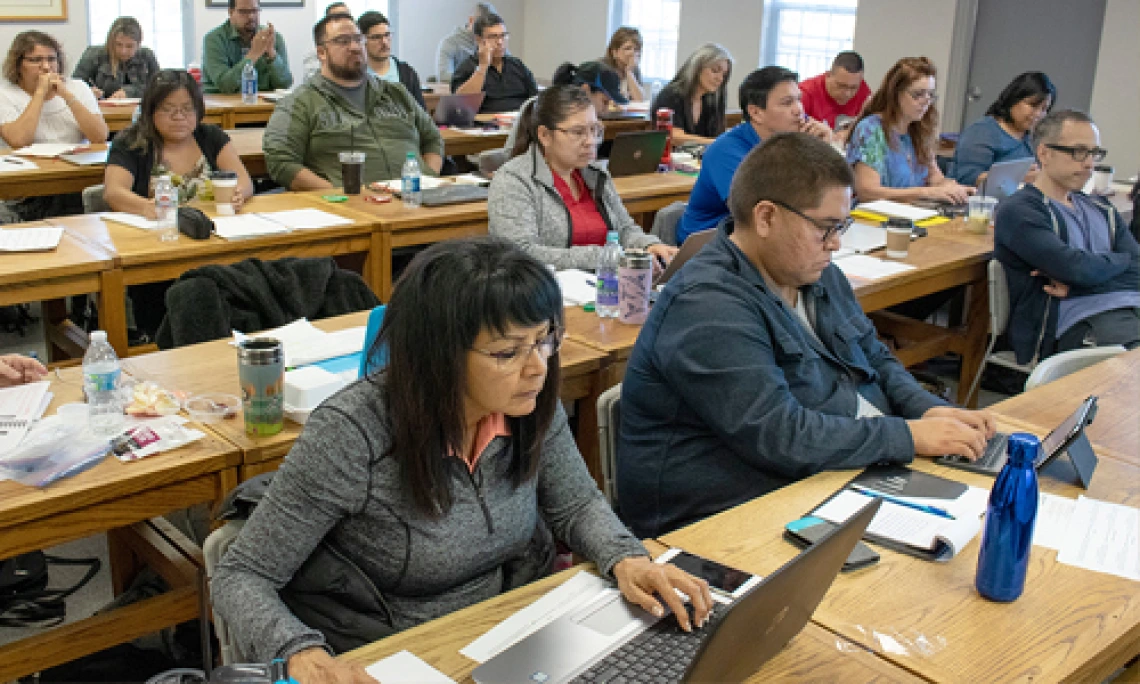Another Successful January in Tucson Comes to a Close

The Native Nations Institute (NNI) welcomed 74 participants from around the world to this year’s January in Tucson (JIT), a three-week, intensive Indigenous governance education session offered by the University of Arizona’s Indigenous Governance Program (IGP). IGP is a joint program of NNI and the Indigenous Peoples Law & Policy Program at the James E. Rogers College of Law. Now in its seventh year, JIT offered 14 of its 15 course catalogue to attendees, and provided complimentary access to NNI’s online Rebuilding Native Nations: Strategies for Governance and Development Introductory Course.
|
In addition to the three week program, six individuals were selected to be a part of the Tribal Professionals Cohort, a selective group open to tribal professionals at any level who work with federally recognized Native Nations and Indigenous peoples. Each recipient received free registration for three courses, a travel stipend, and an opportunity to learn from world-renowned leaders in Indigenous governance and native nation building. |
TRIBAL PROFESSIONALS COHORT 2019:Melissa Borton (Chignik Lagoon Tribe), Tribal AdministratorThomasene Cardone (Yavapai-Apache Nation), Tribal CouncilmemberPahtu Pitt (Confederated Tribes of Warm Springs), Community Engagement SpecialistVanessa Vance (Wichita and Affiliated Tribes), Tribal TreasurerDerrick Leslie (White Mountain Apache Nation), Higher Education CoordinatorCesar Alvarez (Three Afilliated Tribes, Mandan, Hidatsa and Arikara Nation), Intergovernmental Affairs |
Regarding his JIT experience, TPC member Derrick Leslie described the program as providing crucial knowledge that stands to benefit many Native nations: "These courses are empowering me – more so than ever before. And giving me those tools to help question and move the conversation forward in looking at alternatives, solutions, and being more positive.”
As Derrick suggests, there are many opportunities for learning at JIT and the Tribal Professionals Cohort is just one of them. During JIT, participants are able to engage with a diverse array of participants and tribal leaders from Indigenous communities all over the world. These relationships and connections provide valuable opportunities to share knowledge, and exchange ideas on how to solve real-world problems facing Native nations. For example, this year, participants from Carrier Sekani Family Services in British Columbia, Canada participated in JIT, sending both alums of the program and new team members to Tucson. This is an intentional effort to infuse nation building skills and foundations throughout their organization and services.

